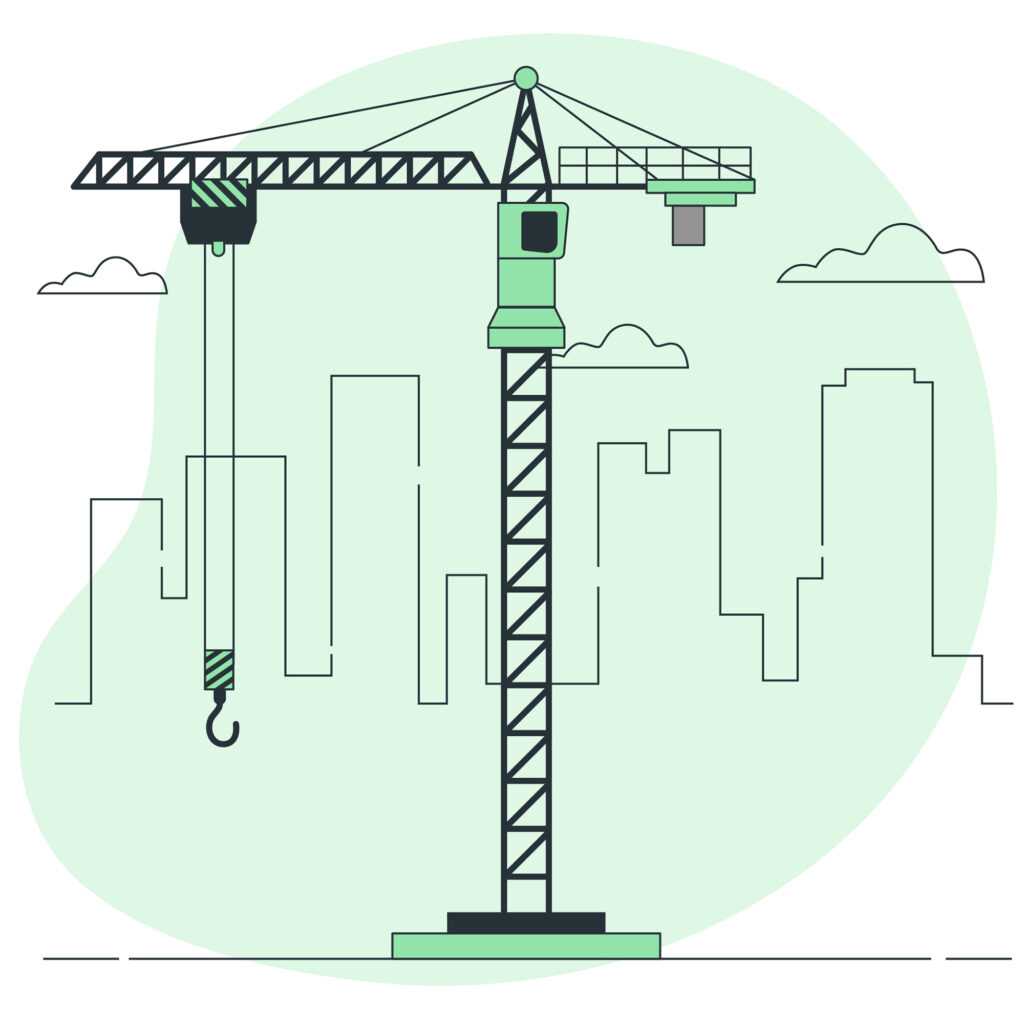Explore our Lifting Operations Courses

RIGGER & BANKSMAN
The participants will be equipped with the necessary knowledge, practical skills, and safety protocols to safely and efficiently perform rigging and lifting operations. They will understand their roles and responsibilities in ensuring safe lifting practices, from equipment selection and inspection to effective communication and emergency response. Additionally, they will be prepared to mitigate risks, ensure compliance with safety regulations, and contribute to a safe working environment in lifting operations.

MOBILE CRANE
The Mobile Crane Training program is designed to provide participants with the knowledge and skills required to safely operate and manage mobile cranes in various work environments. The program ensures that crane operators are well-versed in safety protocols, equipment handling, inspection procedures, and compliance with relevant regulations.

FORKLIFT OPERATIONS
Upon completion of the Forklift Operations training program, participants will be proficient in the safe operation of forklifts, including handling loads, performing inspections, and following safety protocols. They will understand the importance of proper load handling, maneuvering in different environments, and adhering to regulatory requirements. Additionally, they will be prepared to identify hazards, respond to emergencies, and maintain a safe and efficient working environment for both them and others involved in forklift operations.

HIAB OPERATION
The HIAB Operation training program is designed to equip operators with the necessary knowledge and practical skills to safely operate HIAB cranes, which are commonly used for loading, unloading, and transporting materials in various industries, including construction, transportation, and logistics. HIAB cranes are mounted on trucks and are known for their versatility in lifting and moving loads.

HV MARSHALLER
This training trains to safely manage and guide HV operations in high-risk environments. They will understand the critical safety standards, protocols, and communication techniques required to ensure the safety of personnel and equipment in high-voltage zones.
Additionally, they will be prepared to respond to emergencies, identify and mitigate risks, and manage high-voltage equipment and operations with confidence.

TELE HANDLER
The Telehandler (Telescopic Handler) Training Program is designed to equip participants with the skills and knowledge necessary to safely operate telehandlers, which are versatile machines used for lifting, carrying, and placing materials at varying heights and distances. This training ensures operators are competent in handling the equipment, performing lifting tasks, and adhering to safety standards in different work environments like construction sites, warehouses, and industrial facilities.

MOBILE ELEVATED WORKING PLATFORM
Upon completion of the MEWP Training Program, participants will be proficient in the safe operation, inspection, and maintenance of mobile elevated working platforms. They will understand the importance of load capacity, stability, hazard identification, and the use of personal protective equipment (PPE). Additionally, they will be able to assess worksites for potential risks, coordinate with team members, respond to emergencies, and comply with industry regulations, ensuring the safe and effective use of MEWPs in various work environments.

OVERHEAD CRANE
The Overhead Crane Training Program is designed to provide participants with the skills and knowledge required to safely and efficiently operate overhead cranes, which are commonly used in industrial environments such as factories, warehouses, and construction sites for lifting and moving heavy loads. The training ensures that crane operators understand the equipment, safety protocols, operational procedures, and regulatory requirements necessary for safe crane operation.

LIFTING SUPERVISOR
Upon completion of the Lifting Supervisor Training Program, participants will be proficient in supervising lifting operations, ensuring safety and compliance with industry standards and regulations. They will have the skills to plan and assess lifting activities, select and inspect equipment, direct lifting teams, and respond effectively to emergencies. Additionally, they will understand how to manage risks, communicate effectively with team members, and ensure the proper documentation and post-operation procedures are followed, all of which are essential for ensuring safe and efficient lifting operations in various environments.

Lifting Equipment Controller Training
This training program is designed to equip participants with the knowledge and skills required to plan, supervise, and control lifting operations safely and effectively. It covers essential topics such as risk assessment, lifting plans, equipment inspection, load handling, and communication protocols in compliance with international standards and local regulations.
